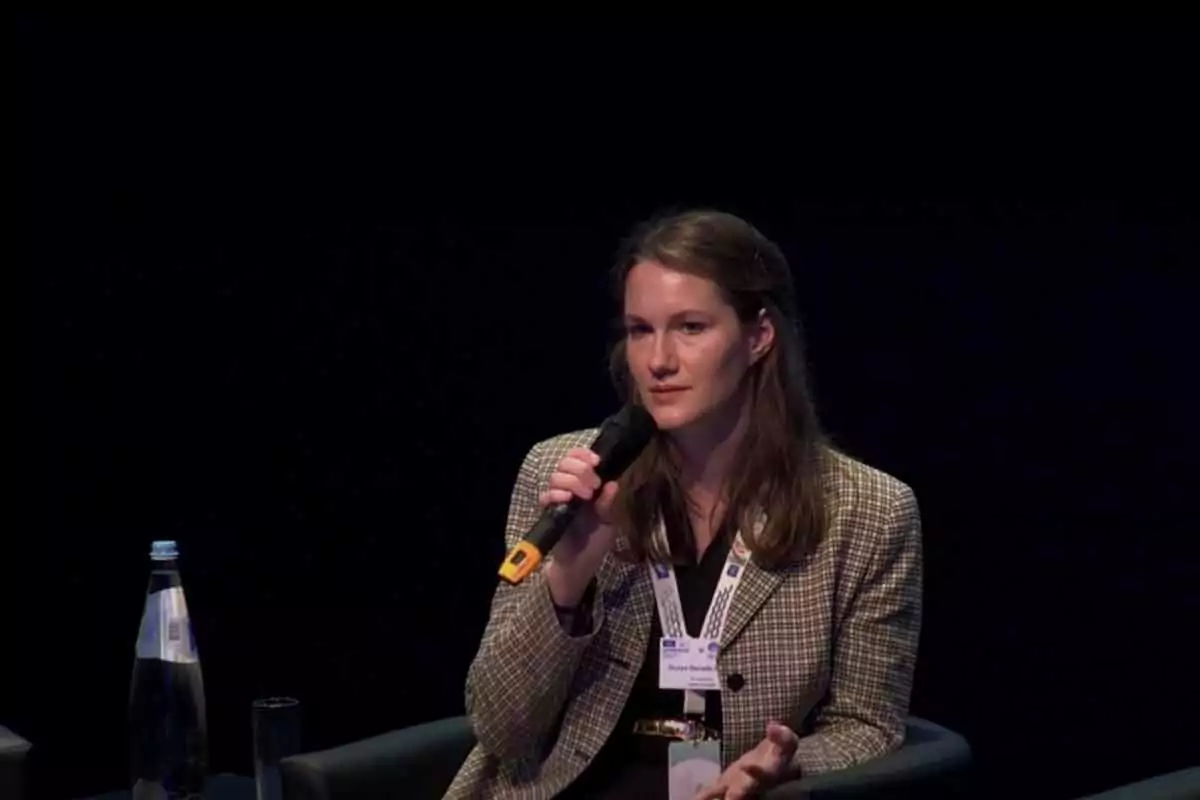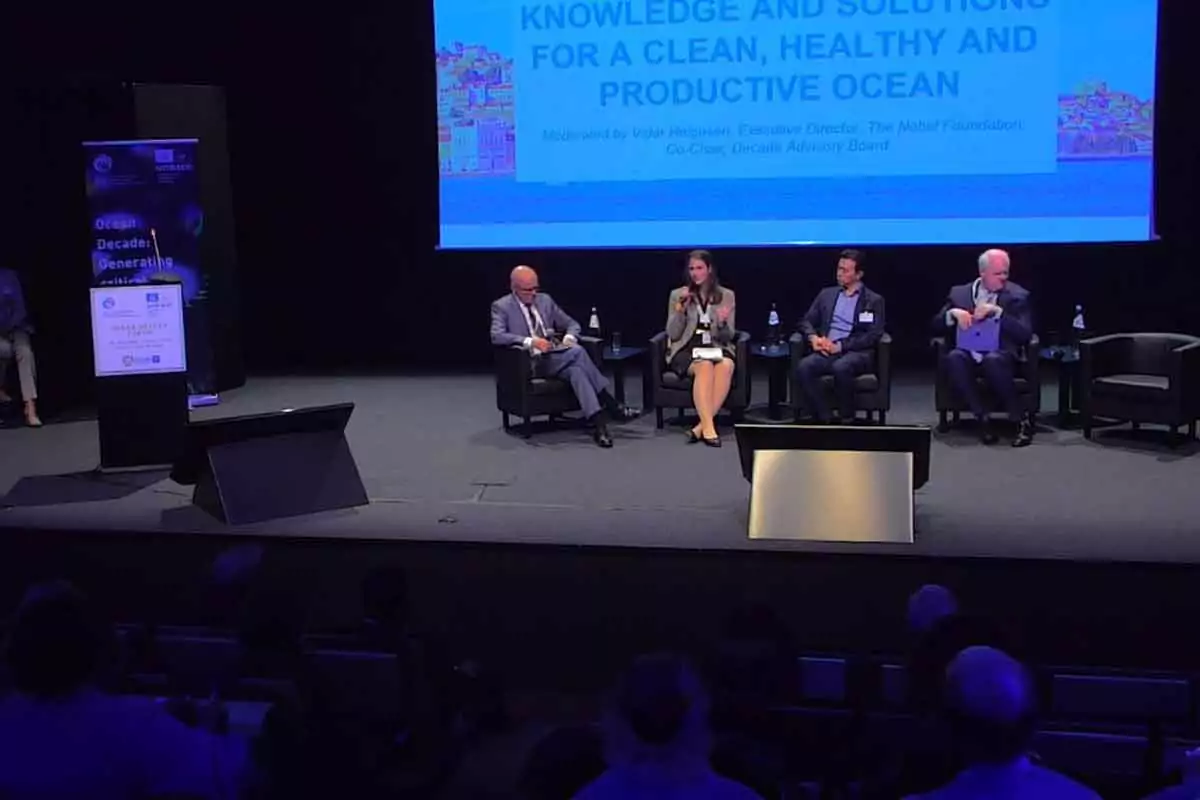As part of the UN Ocean Conference 2022, the UN Ocean Decade hosted its Ocean Decade Forum on 30 June 2022. The event brought together a diverse range of speakers and interventions to celebrate the achievements of the Ocean Decade, showcase Decade Actions, and look towards the future. Alexandra Gerritsen from the MeerWissen secretariat gave insights into the MeerWissen initiative and its hallmark, the co-design approach, by which scientists develop research projects together with decision makers and other relevant stakeholders, during the session “Knowledge and Solutions for a Clean, Healthy and Productive Ocean”.

MeerWissen defines co-design as an iterative and collaborative process that involves diverse types of expertise but also different types of knowledge and actors including policy makers, NGOs and civil society, but also local communities. Gerritsen highlighted the importance of a Co-design approach for solution-oriented research: away from helicopter science to projects that address concrete needs on the ground. According to Gerritsen co-designed partnership projects increase the quality of research in many ways: “by requiring transdisciplinary projects, we challenge our scientists to think beyond their typical boxes; by asking projects to bridge the science-policy gap, we envision a huge contribution to evidence-based decision making; and last but not least, we know that the projects that are implemented together with the stakeholders are not only tackling real life issues but they are also generally more sustainable and through that sustainability you can then have a lasting impact”.
The 3rd MeerWissen Call for project proposals, focused on Nature-based solutions has, for the first time ever, included a 9 months long funded co-design phase, during which the partnership projects are supported as they further define and co-design their projects. This call has been developed as a contribution to the UN Decade of Ocean Science for Sustainable Development 2021 – 2030 (‘the Ocean Decade’). The selected projects will start their co-design phase soon.
MeerWissen has identified four pillars of the co-design process, summarized in a guidance: defining a joined vision and common understanding of the project’s goal; clearly defining roles and responsibilities for improved project management across continents; plan and arrange the extend and iterative process of stakeholder engagement; and plan for sustainability (ensuring processes, networks, partners, and tools are handed over).
BMZ with its MeerWissen initiative and the Intergovernmental Oceanographic Commission (IOC) of UNESCO, that is coordinating the Ocean Decade, will further closely cooperate for transformative, collaborative and co-designed marine science to ensure a healthy and sustainable ocean.
This session showcased Decade Actions and partner initiatives that are working to meet Ocean Decade Challenges related to marine pollution, ecosystem management, sustainable blue food, sustainable ocean economy, and the ocean-climate nexus.
If you want to learn more about MeerWissen and the co-design approach, stay tuned for our upcoming microsite that will showcase the initiative and its projects.
You can watch a recording of the event on YouTube here:

